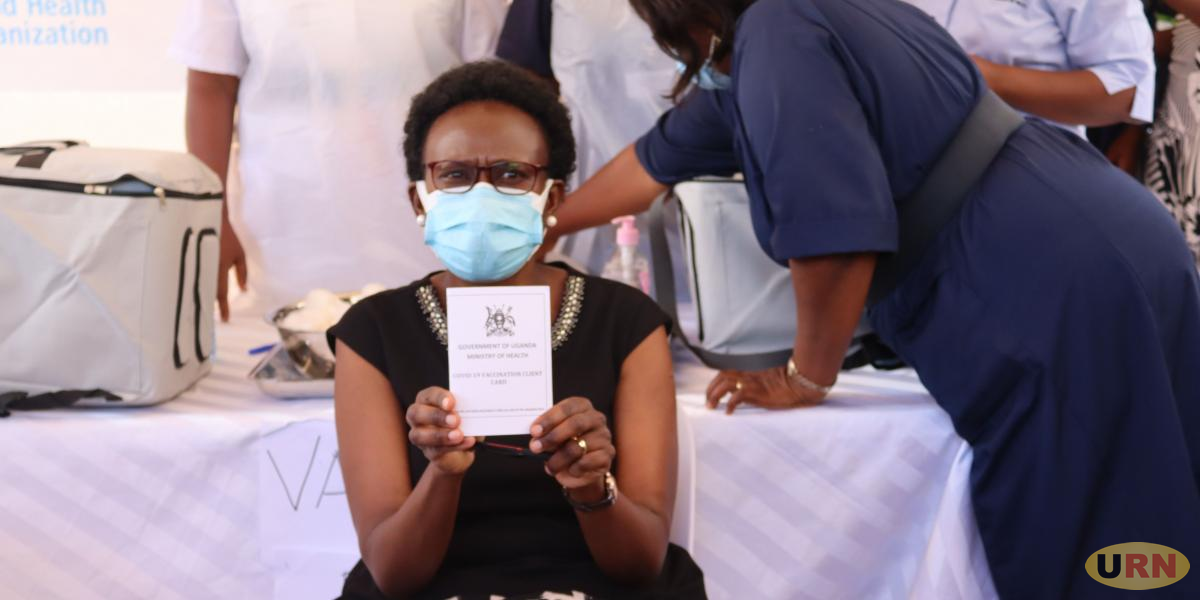The third wave of COVID-19 in Uganda is over and testing of travellers at Entebbe International Airport upon arrival has been stopped effective 26th February. However, pre-departure and pre-arrival are still a requirement.
The Health Minister, Dr Jane Ruth Aceng said there are few positive cases. The positivity rate in the country now stands at 1 percent.
The Omicron variant, which is over 40 times more infectious than other variants of COVID-19 drove the country into the third wave. Records from the Health Ministry show that Uganda entered the third wave in December 2021 and peaked in the first week of January 2022.
Between December 2021 and January 2022, the country registered more than 32,067 COVID-19 cases and more than 246 deaths. Now with 862 cases and 37 deaths reported in February and a positivity rate of one percent, officials from the ministerial COVID-19 scientific task force, say the third wave of the virus has come to an end.
While this should be good news, Dr Aceng warns that this should not be a reason for people to stop observing public health measures.
The director general of health services, Dr. Henry Mwebesa said the new measures at the airport only stops mandatory testing at Entebbe International airport. He says all travellers, entering and leaving the country will however be required to present a 72 hour negative COVID-19 test.
“The requirement for COVID-19 testing 72 hours before boarding for both incoming and exiting traveled remains in effect. Our health workers will continue to screen all travellers both at arrival and departure and verify their COVID-19 test certificates,” says Dr. Mwebesa.
Dr. Aceng in an interview indicated that the testing had been suspended for now but can be re-introduced when there is an increase in cases.
Scientists from the World Health Organisation warned that the Omicron variant is not the last that the world has seen. In a meeting last month, the COVID Technical Lead, Dr Maria Van Kherkove said that the next big variant is around the corner.
Dr Misaki Wayengera, the chairman of the Scientific Committee, says that the world is not yet COVID-19 free and other variants of concern can be detected at any time.
He says the public needs to remain vigilant. “The Omicron variant will not be the last we see. We are going to live with COVID-19 for a while but as we do this we can protect ourselves by getting vaccinated, wearing masks and washing out hands. We have used these measures during two COVID-19 waves and they work. So as the third wave ends, the next variant of concern is around the corner,” Dr Wayengera said.



